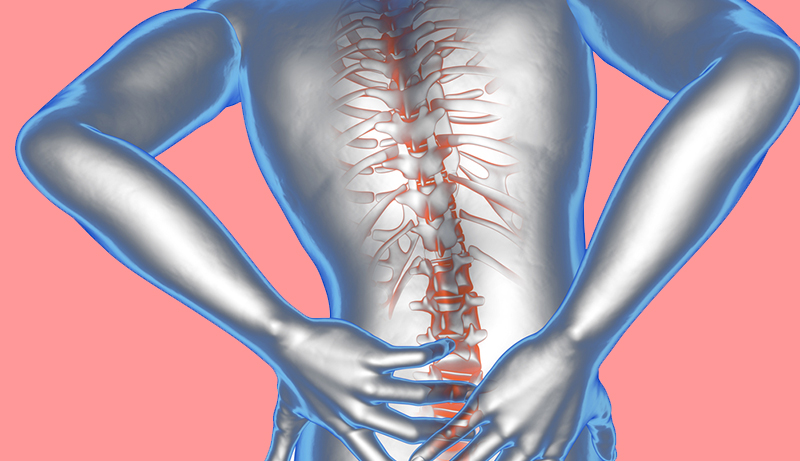Magnesium is an extremely important nutrient, and the study published in the Journal of Intensive Care Medicine found that magnesium deficiency doubles the risk of death.
It is also the cause of numerous diseases and symptoms, so if you optimize the levels of this mineral, you will be able to prevent these health issues.
Magnesium is the most powerful relaxation mineral, improves sleep, and manages stress. Yet, these are only some of its numerous health benefits, so it is high time to read about them and increase the intake of magnesium-rich foods.
Magnesium deficiency causes symptoms like irritability, stiffness, tension, bad mood, and tightness.
This mineral is found in all body tissues and plays a role in more than 300 enzyme reactions. Therefore, it is needed for energy, relaxation of the muscles, for stabilization of membranes, and to support the work of many different chemical pumps.
Nowadays, our diets are low in magnesium-rich foods, like nuts, greens, beans, and seaweed, so we suffer from numerous conditions which are caused by magnesium deficiency.
It is due to its importance and amazing effects that it is used in life-threatening and emergency situations in hospital, such as seizures and heart failure.
These are the most common symptoms of magnesium deficiency:
- Fibromyalgia
- Chronic fatigue
- Irritability
- Sensitivity to loud noises
- Muscle cramps or twitches
- Insomnia
- Anxiety
- Autism
- Migraines
- Asthma
- Kidney stones
- Diabetes
- Anal spasms
- Headaches
- Obesity
- ADD
- Osteoporosis
- High blood pressure
- Reflux
- Trouble swallowing
- PMS
- Menstrual cramps
- Palpitations
- Angina
- Constipation
- Irritable bladder
- Irritable bowel syndrome
The lack of this mineral in the body has been related to inflammation in the body and higher CRP levels.
Magnesium deficiency is very common, and according to the results of conservative standards of measurement (blood, or serum, magnesium levels), 65 percent of people admitted to the intensive care unit — which is 15 percent of the general population — are deficient in magnesium.
Yet, this is alarming, as these rates are probably much higher if we regard the fact that a serum magnesium level is the least sensitive way to detect a drop in the total body magnesium level.
The main reason for this deficiency is our diet, which is low in magnesium, but high in highly-processed, refined foods, and mostly based on white flour, meat, and dairy.
Additionally, these levels are also lowered by the excess intake of salt, coffee, alcohol, chronic diarrhea, diuretics, phosphoric acid in colas, profuse sweating, antibiotics, prolonged or intense stress, excessive menstruation, and some intestinal parasites.
Interestingly, one Kosovo study found that the levels of magnesium in the urine were reduced in people under chronic war stress.
Furthermore, magnesium is often poorly absorbed and easily lost from our bodies, and its absorption required adequate amounts of vitamin B6, vitamin D, and selenium.
According to a recent scientific review of magnesium “It is highly regrettable that the deficiency of such an inexpensive, low-toxicity nutrient results in diseases that cause incalculable suffering and expense throughout the world.”
Yet, even though the consequences of magnesium deficiency can be severe, it is easy to fix it, and here is how:
Magnesium- rich foods
Make sure you increase the intake of the following foods: garlic, dandelion greens, beans, shrimp, pecans, kelp, soy beans, brown rice, wheat bran, wheat germ, almonds, cashews, buckwheat, brazil nuts, dulse, filberts, millet, pecans, walnuts, rye, tofu, figs, dates, collard greens, barley, avocado, parsley.
Avoid Draining the Body of Magnesium
You should also lower the intake of alcohol, sugar, soda drinks, coffee, and salt, and check if any of the medications you take lead to magnesium loss, such as some high blood pressure drugs or diuretics.
Magnesium Supplements
The daily RDA (the minimum amount needed) for magnesium is about 300 mg, and some people might need it in higher amounts. Yet, most people benefit from 400 to 1,000 mg a day.
Most minerals are best taken in a combination with other minerals, in a multi-mineral formula. The best magnesium supplements you can have are magnesium citrate, glycinate taurate, or aspartate, as they are most absorbable.
On the other hand, some poorly absorbed ones include magnesium sulfate, carbonate, gluconate, and oxide.
Moreover, Epsom salts (magnesium sulfate) baths are an excellent way to absorb the mineral and enjoy its benefits.
In the case of severe heart diseases or kidney disease, take magnesium under a doctor’s supervision only. As soon as you optimize the levels of this mineral, you will reap its benefits and enjoy your vibrant health.
Source: theheartysoul.com
